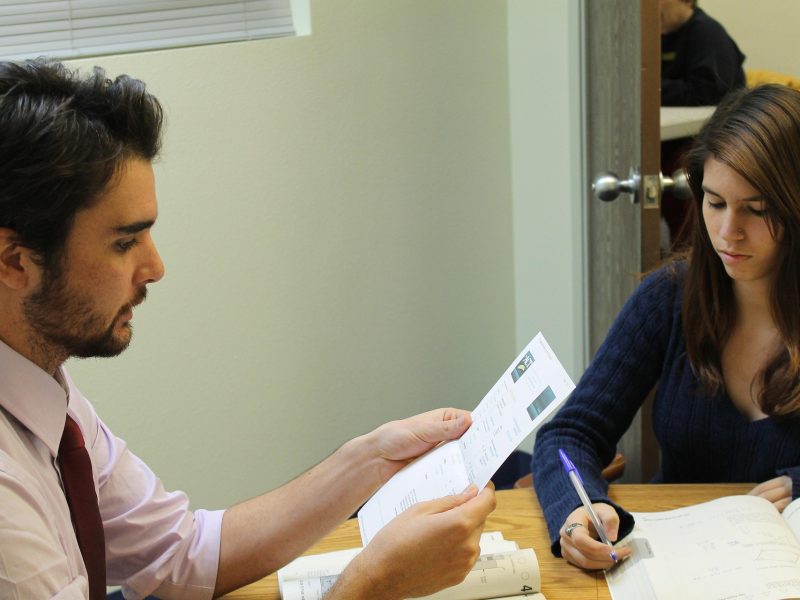The transition from high school to college is one of the most significant milestones in a young person’s life. It demands not only academic readiness but also maturity, independence, and strong self-management skills.
For parents and teachers invested in student success, ensuring adequate preparation for this leap is a primary concern. While many high schools strive to equip students for higher education, boarding schools often claim a distinct advantage in fostering college preparedness. Is this claim justified? What specific aspects of the boarding experience contribute to students being exceptionally well-prepared for the academic and personal challenges of university life?
This post will delve into how the unique environment of boarding schools – encompassing rigorous academics, structured independence, comprehensive support systems, and a focus on life skills – gives students a tangible edge when they step onto a college campus.
Academic Rigor and Advanced Coursework
At the heart of boarding school college preparation lies a commitment to academic excellence. Boarding schools typically offer challenging curricula, often exceeding the requirements of standard high school programs. Advanced Placement (AP), International Baccalaureate (IB), and honors courses are commonplace, exposing students to college-level work while still in high school. This rigorous coursework not only strengthens academic foundations but also cultivates critical thinking, analytical skills, and sophisticated writing abilities – all essential for success in university lecture halls and seminars.
Furthermore, the learning environment itself contributes significantly. Small class sizes, a hallmark of many boarding institutions, facilitate deeper engagement, personalized attention from faculty, and more dynamic classroom discussions.
As noted by sources like Oak Hill Academy and Army and Navy Academy, teachers often hold advanced degrees and are experts in their fields, providing high-quality instruction. The expectation for active participation and intellectual curiosity mirrors the environment students will encounter in college, making the academic transition less jarring. Students learn to engage with complex material, articulate their ideas, and defend their arguments – skills that serve them well in higher education.
Developing Independence and Self-Management Skills
Perhaps one of the most significant advantages boarding schools offer is the accelerated development of independence and self-management skills (learn how boarding school fosters
Developing Independence).
Living away from home requires students to take ownership of their daily lives in ways most day-school students do not experience until college. They learn to manage their time effectively, balancing academic assignments, extracurricular commitments, social activities, and personal responsibilities like laundry and room upkeep.
This structured independence is crucial. Students aren’t simply left to fend for themselves; they learn these skills within a supportive framework provided by dorm parents, advisors, and established school routines (like mandatory study halls). They learn to navigate deadlines, prioritize tasks, wake themselves up on time, and manage a budget (if applicable) – all practical skills essential for thriving in the less structured environment of college.
As highlighted by numerous sources, including IMG Academy’s blog, this early practice in self-reliance means boarding school graduates often arrive at college already possessing the organizational and time-management skills that their peers are just beginning to develop, allowing them to adapt more quickly and focus on their studies.
Cultivating Self-Advocacy and Resourcefulness
Closely linked to independence is the development of self-advocacy. In a boarding school environment, students learn to proactively seek help when they need it, whether it’s academic support from a teacher, guidance from an advisor, or assistance from residential staff. Teachers and support staff are typically highly accessible, often living on campus, but students must take the initiative to utilize these resources.
This contrasts with situations where parents might intervene on a student’s behalf. Boarding students learn to communicate their needs directly, schedule meetings with teachers, navigate school systems, and take responsibility for resolving their own challenges. This ability to identify needs and access resources is invaluable in college, where support systems exist but require students to actively engage with them (e.g., visiting professors during office hours, utilizing writing centers, seeking counseling services).
Boarding school graduates are often more comfortable and adept at navigating these systems, preventing small issues from escalating and ensuring they get the support they need to succeed.
Comprehensive College Counseling and Guidance
Boarding schools typically invest heavily in their college counseling programs, recognizing that guiding students toward the right post-secondary fit is a critical part of their mission. College counselors in these settings often have smaller caseloads than their public-school counterparts, allowing for more personalized attention for each student.
They work closely with students, often starting early in their high school careers, to explore interests, identify potential majors and careers, research colleges, and navigate the complex application process.
These counselors are usually experts in the nuances of college admissions, including standardized testing strategies, essay writing, financial aid applications (FAFSA, CSS Profile), and specific requirements for different types of institutions (including international universities or specialized arts/athletics programs).
They build relationships with college admissions officers, advocate for their students, and provide invaluable guidance on finding schools that are a good academic, social, and financial fit (read the
Guide to Selecting a Boarding School). As emphasized by sources like Boarding Schools of India, this dedicated, expert support significantly demystifies the application process and helps students present their strongest possible candidacy, increasing their chances of acceptance into well-matched institutions.
Exposure to Diverse Perspectives and Community Living
Living in a residential community with peers from diverse geographic, cultural, and socioeconomic backgrounds provides another layer of college preparation. Boarding school students learn to navigate differences, communicate across cultures, resolve conflicts, and appreciate diverse perspectives – skills essential for thriving in the increasingly globalized environment of college campuses and the modern workforce.
Learning to live respectfully and collaboratively with roommates and dorm mates teaches tolerance, compromise, and interpersonal skills. This experience closely mirrors college dormitory life, making the social transition smoother. Students arrive at college already accustomed to sharing space, respecting community rules, and engaging with people different from themselves. This social maturity and adaptability allow them to integrate more easily into the college community and build positive relationships.
Conclusion: A Foundation for Future Success
The college preparedness advantage offered by boarding schools stems from a unique combination of factors inherent in their structure and philosophy. Rigorous academics and advanced coursework build a strong intellectual foundation, while the residential experience accelerates the development of crucial life skills like independence, time management, self-advocacy, and resourcefulness. Comprehensive, personalized college counseling provides expert guidance through the application maze, and living within a diverse community fosters social maturity and adaptability.
For parents and teachers, recognizing these integrated benefits clarifies why boarding school graduates often transition to college with greater confidence and competence. They arrive not just academically prepared, but also equipped with the personal skills and maturity needed to navigate the freedoms and challenges of university life successfully. This holistic preparation provides a significant edge, setting them on a path for achievement in higher education and beyond.
It has survived not only five centuries, but also the leap into electronic typesetting, remaining essentially unchanged. It was popularised in the 1960s with the release of Letraset sheets containing Lorem Ipsum passages, and more recently with desktop publishing software like Aldus PageMaker including versions of Lorem Ipsum.
It is a long established fact that a reader will be distracted by the readable content of a page when looking at its layout. The point of using Lorem Ipsum is that it has a more-or-less normal distribution of letters, as opposed to using ‘Content here, content here’, making it look like readable English.
Many desktop publishing packages and web page editors now use Lorem Ipsum as their default model text, and a search for ‘lorem ipsum’ will uncover many web sites still in their infancy. Various versions have evolved over the years, sometimes by accident, sometimes on purpose (injected humour and the like).
There are many variations of passages of Lorem Ipsum available, but the majority have suffered alteration in some form, by injected humour, or randomised words which don’t look even slightly believable.
If you are going to use a passage of Lorem Ipsum, you need to be sure there isn’t anything embarrassing hidden in the middle of text. All the Lorem Ipsum generators on the Internet tend to repeat predefined chunks as necessary, making this the first true generator on the Internet.
It uses a dictionary of over 200 Latin words, combined with a handful of model sentence structures, to generate Lorem Ipsum which looks reasonable. The generated Lorem Ipsum is therefore always free from repetition, injected humour, or non-characteristic words etc.
The standard chunk of Lorem Ipsum used since the 1500s is reproduced below for those interested. Sections 1.10.32 and 1.10.33 from “de Finibus Bonorum et Malorum” by Cicero are also reproduced in their exact original form, accompanied by English versions from the 1914 translation by H. Rackham.










